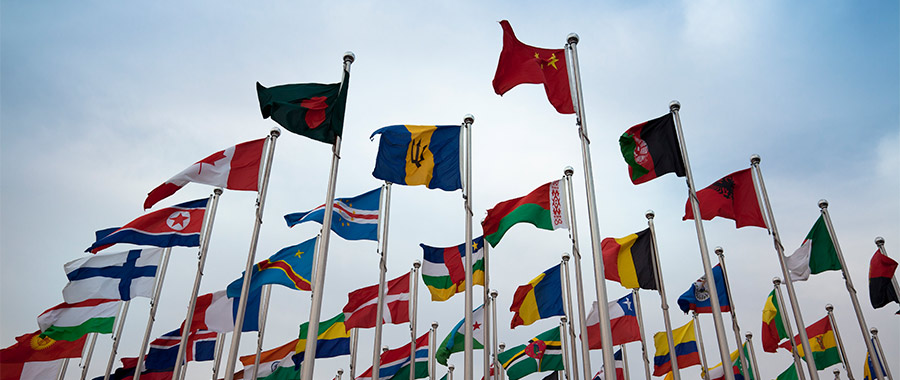In the expansive corpus of Bahá’í teachings, the concept of releasing the universal capacity for transformative social change stands as a pivotal theme. This notion is intrinsically woven into the fabric of the Bahá’í Faith, embodying principles that reflect the interconnectivity of humanity and the profound implications of spiritual and social development. The teachings articulate a vision that transcends mere reformative ideals, aspiring to cultivate a societal paradigm that engenders equity, justice, and unity. Herein, we explore a comprehensive framework that sheds light on the essence, implications, and methodologies underlying this transformative capacity.
The Foundation of Bahá’í Teachings
The Bahá’í Faith posits that the advancement of civilization is contingent upon spiritual awakening and moral rectitude. Thus, at the heart of this doctrine lies the principle of the oneness of humanity. This principle asserts that all individuals, regardless of race, nationality, or creed, share a common heritage and a collective responsibility toward fostering global welfare. Such an understanding prompts a re-evaluation of societal structures, urging individuals to engage in collective action aimed at dismantling the barriers that perpetuate discord and inequity.
The Role of Spirituality in Social Change
Bahá’í teachings emphasize the transformative potential of spirituality as a catalyst for social change. The integration of spiritual principles into the dynamics of everyday life imbues social action with purpose and ethical grounding. Bahá’ís believe that true progress can only manifest when the moral imperatives of love, unity, and justice undergird societal endeavors. This spiritual perspective not only elevates individual consciousness but also motivates communal activities aimed at addressing pressing social issues, such as poverty, education inequities, and environmental degradation.
Paths to Transformative Change
Releasing the universal capacity for transformative social change encompasses various pathways through which individuals and communities can enact meaningful impact. One prominent pathway is through education. The Bahá’í Faith advocates for universal access to education, viewed as a fundamental right and a potent tool for empowerment. By fostering critical thinking, ethical reasoning, and holistic development, education can dismantle oppressive structures, cultivating a more informed and engaged citizenry.
Moreover, collaborative action emerges as a vital mechanism for facilitating transformation. Bahá’ís are encouraged to engage in collective endeavors that harness the collective energies and resources of communities. Such collaborations may manifest through community service projects, social action initiatives, and the establishment of consultative bodies that promote dialogue and cooperation among diverse segments of society. This participatory approach nurtures shared ownership of the challenges faced, leading to sustainable and impactful solutions.
Empowerment through Local Governance
Central to the Bahá’í vision of social change is the concept of local governance, characterized by an inclusive and participatory framework. Bahá’ís contend that empowering local communities to make decisions that impact their lives is crucial for catalyzing transformative change. This empowerment operates on the premise that individuals possess innate capacities and insights relevant to their circumstances, thus necessitating a leadership model that is decentralized, consultative, and responsive to the needs of the populace. By embracing this governance model, communities can foster resilience, adaptability, and innovation in addressing local and global challenges.
Social Equity and Justice
The commitment to social equity and justice is a hallmark of Bahá’í teachings, serving as a philosophical underpinning for efforts aimed at transformative social change. The teachings advocate for the eradication of prejudice and discrimination, promoting a vision where diversity is celebrated and inclusivity is paramount. Action against injustice—and the promotion of equity in all spheres, including gender, race, and socioeconomic status—are seen as essential steps toward achieving a more harmonious society. This principle not only acknowledges the existing disparities but also provides a framework for rectifying them through proactive, values-driven initiatives.
The Interconnection of Global Challenges
In addressing transformative social change, Bahá’í teachings underscore the interconnection of global challenges. The increasingly complex and interwoven issues facing humanity, such as climate change, globalization, and technological disruption, require holistic and integrated approaches. Bahá’ís are encouraged to adopt a worldview that recognizes the interplay between social, economic, and environmental spheres, and to advocate for solutions that acknowledge these interdependencies. Such an approach cultivates cross-disciplinary collaboration and fosters a deeper understanding of the collective responsibility toward the planet and its inhabitants.
The Role of Youth in Transformation
Youth represent a pivotal demographic in the realization of transformative social change as envisioned in Bahá’í teachings. The energy, creativity, and idealism of young people are essential in challenging the status quo and envisioning innovative alternatives. Bahá’í educational programs emphasize the leadership potential of youth, equipping them with the tools necessary to become active agents of change in their communities. By fostering a sense of agency and encouraging civic engagement, Bahá’í communities promote the emergence of a generation committed to the principles of unity, justice, and service.
Conclusion: A Collective Journey Toward Transformation
In conclusion, the Bahá’í teachings on releasing the universal capacity for transformative social change invite individuals and communities to embark on a collective journey toward a just, united, and equitable world. By grounding efforts in spiritual principles, fostering participatory governance, advocating for social equity, and engaging the transformative potential of youth, the teachings provide a blueprint for meaningful action. As adherents of this faith continue to navigate the complexities of modern life, their commitment to these principles serves as a beacon of hope, illuminating pathways toward a more harmonious global society.
